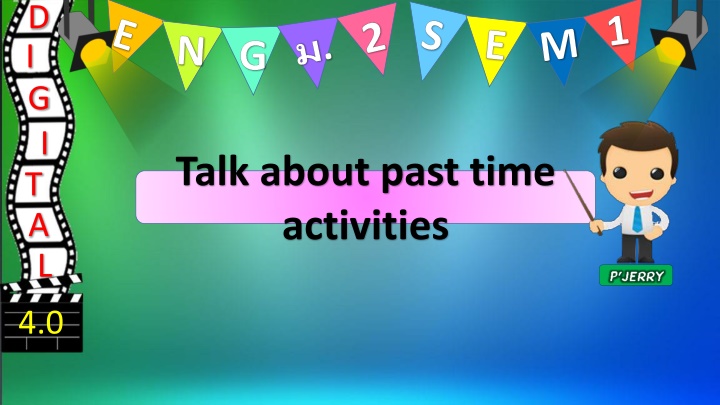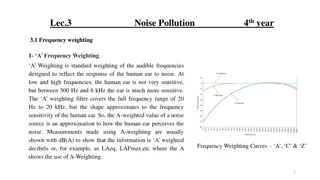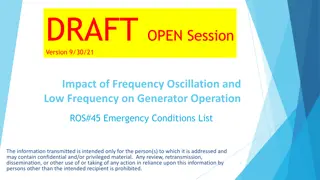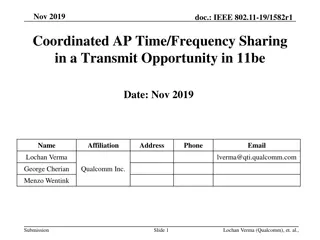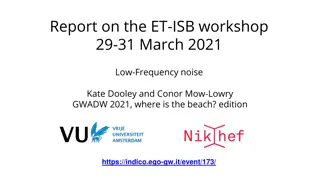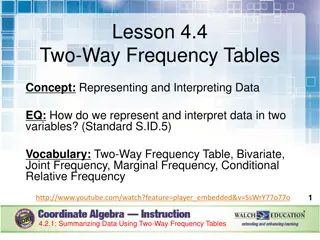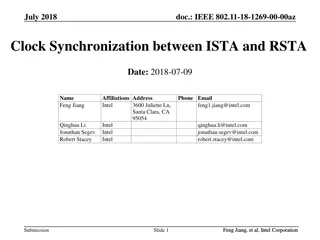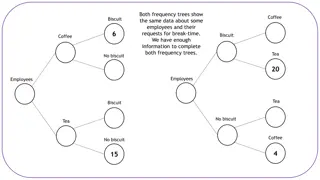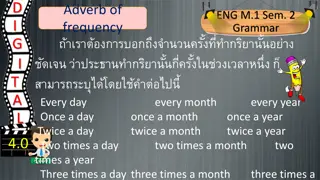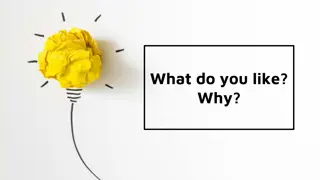Talking About Hobbies: Likes, Frequency, and Preferences - English
Explore various expressions for talking about past time activities, expressing likes and dislikes, discussing hobbies, and sharing preferences in free time. Learn how to use adverbs of frequency and descriptive participles to convey how often and why you enjoy your hobbies. Discover common hobbies, likes, and dislikes in casual conversations.
Uploaded on Oct 01, 2024 | 8 Views
Download Presentation

Please find below an Image/Link to download the presentation.
The content on the website is provided AS IS for your information and personal use only. It may not be sold, licensed, or shared on other websites without obtaining consent from the author.If you encounter any issues during the download, it is possible that the publisher has removed the file from their server.
You are allowed to download the files provided on this website for personal or commercial use, subject to the condition that they are used lawfully. All files are the property of their respective owners.
The content on the website is provided AS IS for your information and personal use only. It may not be sold, licensed, or shared on other websites without obtaining consent from the author.
E N D
Presentation Transcript
D I G E M 1 . 2 S E N G I Talk about past time activities T A L 4.0
D I G Saying what you like like + noun / ing form I like tennis / I like playing tennis love + noun / ing form He loves football / He loves watching football be keen on + noun / ing form She's keen on the cinema / going to the cinema enjoy + noun / ing form We enjoy sports / playing sports ENG M.2 Sem. 1 Listening & Conversation I T A L 4.0
D I G Saying what you like You can add "very much" at the end of the sentence. I like tennis. I like tennis very much. You can add "at all" to a negative sentence if you don't like something. I don't like cricket. I don't like cricket at all. ENG M.2 Sem. 1 Listening & Conversation I T A L 4.0
D I G Talking about your hobby Use adverbs of frequency (always, sometimes, rarely etc) or another phrase to talk about how often or when you do your hobby. ex. I only watch football at the weekends. I go to the gym four times a week. I don't often have time to socialise with friends. ENG M.2 Sem. 1 Listening & Conversation I T A L 4.0
D I G Talking about your hobby You can say why you like your hobby by describing it with an -ing adjective. ex. I like swimming because it's relaxing. Watching football is exciting. It's interesting to surf the net. ENG M.2 Sem. 1 Listening & Conversation I T A L 4.0
D I G Talking about your hobby ENG M.2 Sem. 1 Listening & Conversation Q: What do you enjoy doing in your free time? A: I spend a lot of time going to discos with my friends. I T A L Q: Are you keen on sports? A: Yes, I love playing tennis in summer. 4.0
D I G Talking about your hobby ENG M.2 Sem. 1 Listening & Conversation Q: Are you a sports fan? A: Not really. I prefer relaxing with friends in a restaurant. I T A L Q: Do you like going to restaurants? A: Not much. I prefer cooking at home. 4.0
D I G ENG M.2 Sem. 1 Listening & Conversation Typical hobbies Watching television Visiting friends Entertaining friends Listening to music Reading books Going to the pub Going to a restaurant I T A L 4.0
D I G ENG M.2 Sem. 1 Listening & Conversation Typical hobbies Using play, do and go When we talk about our hobbies, we can use the verbs play, do, or go. My sister plays tennis every weekend. My brother likes doing DIY. I go swimming three times a week. I T A L 4.0
D I G ENG M.2 Sem. 1 Listening & Conversation Typical hobbies Using play, do and go Play + sport / game play football / play video games / play chess Do + hobby / individual sport do DIY, do judo Go + activity go swimming, go fishing I T A L 4.0
D I G ENG M.2 Sem. 1 Listening & Conversation Typical hobbies What do you like doing? I What sort of hobbies do you have? T A What do you get up to in your free time? L 4.0
D I G ENG M.2 Sem. 1 Listening & Conversation Typical hobbies In my free time I When I have some spare time I When I get the time, I I relax by watching TV / listening to music, etc. My hobbies are bird-watching / playing sport, etc. I T A L 4.0
D I G ENG M.2 Sem. 1 Listening & Conversation Typical hobbies I'm interested in (+ noun / gerund) I'm keen on (+ noun / gerund) I'm into (+ noun / gerund) I enjoy (+ noun / gerund) I T A L 4.0
D I G ENG M.2 Sem. 1 Listening & Conversation Typical hobbies You can add "really" or "quite" after "I'm " for emphasis. "I'm really keen on football "I'm really into genealogy." I T A L 4.0
D I G ENG M.2 Sem. 1 Listening & Conversation Typical hobbies You can give more information about your hobbies and interests: "I like arts and crafts. I'm a creative / practical person, and like doing things with my hands." "I'm an outgoing person, and like socialising / hanging out with friends." "I enjoy being physically active, and spend a lot of time playing sports and team games." I T A L 4.0
D I G ENG M.2 Sem. 1 Listening & Conversation Typical hobbies You can also explain why you spend time on your hobby to make the conversation longer and more interesting. I T A L 4.0
D I G ENG M.2 Sem. 1 Listening & Conversation Typical hobbies "I really enjoy going to the gym because " it keeps me fit. it gets me out of the house, you know! it's sociable. I've met lots of new people. it gives me something interesting to do with my time. it's not very expensive, and anyone can do it! I T A L 4.0
D I G ENG M.2 Sem. 1 Listening & Conversation Typical hobbies "My hobbies are all creative " I've always enjoyed painting and drawing. Because my job is technical, it's good to spend time doing something completely different. I enjoy spending time making things like clothes. I T A L 4.0
D I G ENG M.2 Sem. 1 Listening & Conversation Typical hobbies Like doing vs like to do We use like + gerund (-ing form) to talk about general likes: I like fishing. We use like + infinitive to talk about more specific likes: I like to go fishing at the weekend. I T A L 4.0
